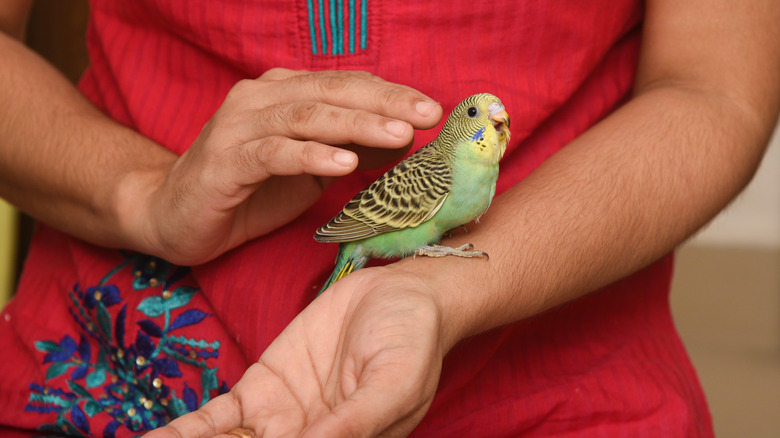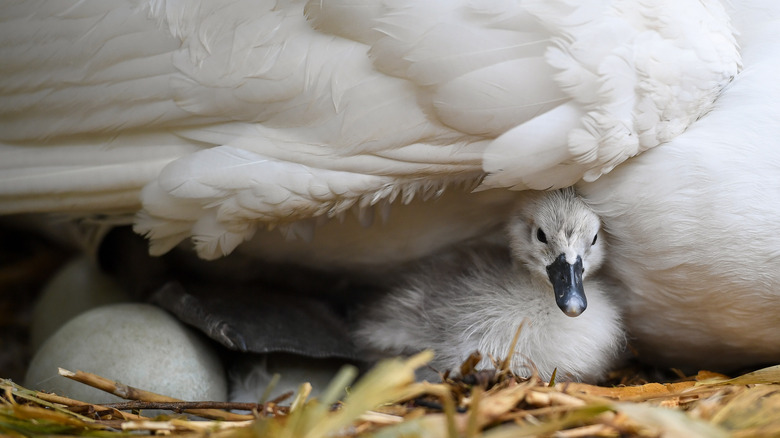Will A Baby Bird Really Get Abandoned If You Touch It?
You've probably heard this advice at least once or twice growing up: If you see a baby bird that's fallen out of its nest, you shouldn't touch it. The theory goes that if a human gets its scent on a baby bird, its mother will smell the unfamiliar scent, associate it with dangerous predators, and immediately reject and abandon their young. Sounds terrifying, right? However, it turns out that the nature advice that you have been following all these years isn't really true at all.
Mothers are some of the most dedicated creatures in the animal kingdom. Pretty much all animal moms are ferociously committed to protecting their young and making sure that nothing harms them, and it turns out birds are no exception. So it would take a lot more than the scent of a human hand to cause them to abandon their young. What's more, except for a handful of exceptions, most birds do not have a particularly keen sense of smell, and they almost certainly would not be able to distinguish a human's scent with their limited olfactory nerves, according to Scientific American. "Birds don't have a very strong sense of smell, so you won't leave a scent that will alarm the parent," assures Miyoko Chu, a biologist at the Cornell Lab of Ornithology (via Live Science), adding "Usually, birds are quite devoted to their young and not easily deterred from taking care of them."
It is still best to leave baby birds alone
So what really happens if you do touch a baby bird? Likely, not much would happen, other than possibly annoying the bird. However, it is still good advice to leave baby birds alone. One of the reasons this advice is so common is in part because humans, particularly young children, might accidentally harm the bird if they don't know how to handle it properly. Touching wildlife may also inadvertently transfer some diseases either to or from human to animal (via the Alaska Department of Fish and Game). So in general, it is probably best practice to simply leave nature alone and just let it do its thing.
Additionally, not every baby bird you see on the ground really needs help. Even if you happen to see a baby bird out of its nest, it could simply be a fledgling learning how to fly. Their moms are likely nearby, still keeping a close eye on their fluttering fledglings, so they are in no real danger. according to Mass Audubon. So, while touching a baby bird might not result in its becoming abandoned and alone, humans should really only touch baby birds if they really are injured or in immediate danger, like if a predator or other threat happens to be nearby.

